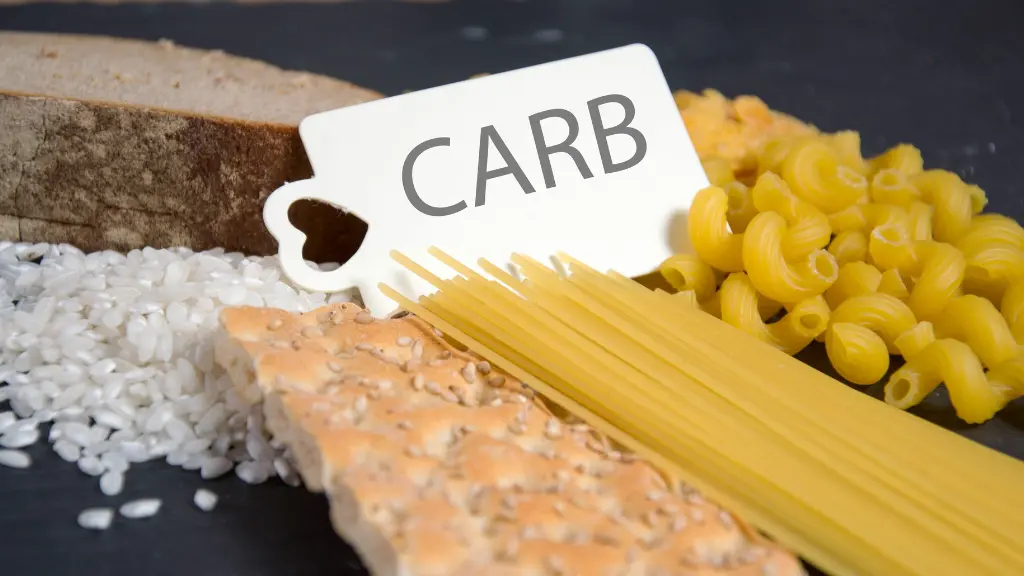Carbohydrates are an essential part of most diets, but for some people, they may come with an unexpected side effect: headaches. If you’ve ever experienced head pain shortly after eating a carbohydrate-rich meal, you’re not alone. Many people report headaches after consuming carbs, and the reasons behind this phenomenon can vary.
This article explores the potential causes of carbohydrate-related headaches, from blood sugar spikes and insulin responses to hydration levels and food sensitivities.
You May Also Like: Fendi’s 100th Anniversary
What Are Carbohydrates, and Why Are They Important?
Carbohydrates are one of the body’s primary sources of energy. They are found in foods like grains, fruits, vegetables, and sugars, and are classified into three main types: sugars, starches, and fiber. When you eat carbs, your body breaks them down into glucose, a type of sugar that fuels your cells and helps power your brain and muscles.
However, not all carbohydrates are created equal. Simple carbs (like sugars and refined grains) break down quickly, leading to rapid spikes in blood sugar. Complex carbs (such as whole grains and vegetables) are digested more slowly, resulting in a steadier energy release. For some people, the way their body processes these carbs can lead to symptoms like headaches.
Common Causes of Carbohydrate-Related Headaches
Several factors could contribute to headaches following carb consumption. Here are some of the most common causes:
1. Blood Sugar Spikes and Drops
One of the main reasons carbs can trigger headaches is due to blood sugar fluctuations. When you consume simple carbs, they are quickly broken down into glucose, leading to a rapid increase in blood sugar levels. This “spike” is often followed by a “crash,” where blood sugar drops suddenly. This sudden change can affect brain function and is a well-known cause of headaches.
- How to Manage It: To prevent blood sugar spikes and drops, choose complex carbs over simple ones. Foods like whole grains, legumes, and vegetables break down more slowly, providing a more steady release of glucose.
2. Insulin Response
When you eat carbs, your body releases insulin to help cells absorb glucose from the blood. In some people, this insulin response can be intense, leading to a sharp drop in blood sugar. This quick decline in glucose availability can result in a hypoglycemic (low blood sugar) state, which can trigger headaches as well as dizziness, irritability, and fatigue.
- How to Manage It: Pairing carbs with protein or healthy fats can slow down digestion and help stabilize blood sugar levels. For example, consider adding a source of protein (like yogurt) or healthy fat (like avocado) to your meals.
3. Dehydration
Eating carbohydrate-rich foods, especially those high in sodium, can sometimes lead to dehydration. Carbs are known to bind to water in the body. For every gram of stored carbohydrate (as glycogen), the body holds onto about three grams of water. When you consume a lot of carbs, your body may pull water from other areas, potentially leading to dehydration, which is a common headache trigger.
- How to Manage It: Make sure to stay hydrated, especially if you’re eating a carb-heavy meal. Drinking water throughout the day helps to prevent dehydration and may reduce the risk of headache.
4. Food Sensitivities
Some people have specific food sensitivities or intolerances that may be triggered by certain carb-rich foods. For example, foods containing gluten, a protein found in wheat, barley, and rye, can lead to headaches in people who are sensitive to it. Additionally, certain sugars, such as fructose (found in fruits, honey, and some vegetables), may cause headaches in people with fructose malabsorption.
- How to Manage It: If you suspect a food sensitivity, try eliminating one potential trigger at a time and see if your symptoms improve. A registered dietitian can also help guide you through this process.
Other Factors to Consider
Headaches triggered by carbs may also be influenced by other lifestyle factors, such as stress, sleep, and overall diet. Here’s how these additional factors can play a role:
1. Stress Levels
Stress can exacerbate the body’s response to carbohydrates, making blood sugar fluctuations and headaches worse. Stress hormones like cortisol can affect how your body processes glucose, potentially leading to greater swings in blood sugar levels and more frequent headaches.
- How to Manage It: Managing stress through practices like deep breathing, mindfulness, and exercise can improve blood sugar stability and potentially reduce headache frequency.
2. Lack of Sleep
Poor sleep can lead to increased insulin resistance, meaning your body has a harder time managing blood sugar levels. This can lead to higher blood sugar spikes and drops after eating carbs, potentially resulting in headaches.
- How to Manage It: Aim for seven to nine hours of quality sleep each night. Good sleep hygiene practices, like keeping a consistent bedtime and limiting screen time before bed, can also help.
Dietary Tips for Reducing Carbohydrate-Induced Headaches
If you experience headaches after eating carbs, here are some dietary adjustments that may help:
- Choose Low Glycemic Index (GI) Foods: Low-GI foods release glucose slowly, reducing blood sugar spikes. Examples include whole grains, legumes, and non-starchy vegetables.
- Avoid Sugary Drinks and Sweets: Sugary drinks and sweets are high in simple carbs and can cause rapid blood sugar spikes. Opt for water, herbal teas, or other low-sugar options instead.
- Include Fiber-Rich Foods: Fiber slows down the absorption of glucose, helping to keep blood sugar levels stable.
- Eat Smaller, Balanced Meals: Smaller meals spread throughout the day can help prevent blood sugar fluctuations. Balance your meals with protein, healthy fats, and fiber.
- Monitor Your Symptoms: Keep track of what you eat and any headache symptoms you experience. This can help you identify specific triggers.
When to Seek Medical Advice
While dietary adjustments can help reduce the frequency of carb-related headaches, persistent or severe headaches may require further investigation. Speak to a healthcare professional if:
- You experience regular headaches that don’t improve with lifestyle changes.
- Your headaches are accompanied by other symptoms like confusion, vision changes, or numbness.
- You suspect an underlying condition, such as diabetes or a food intolerance.
Conclusion
Headaches caused by carbs can be a frustrating experience, but understanding the potential causes is the first step toward finding relief. Blood sugar fluctuations, insulin responses, dehydration, and food sensitivities can all play a role. By choosing complex carbs, staying hydrated, and paying attention to your body’s unique needs, you can help manage and potentially prevent these headaches.










